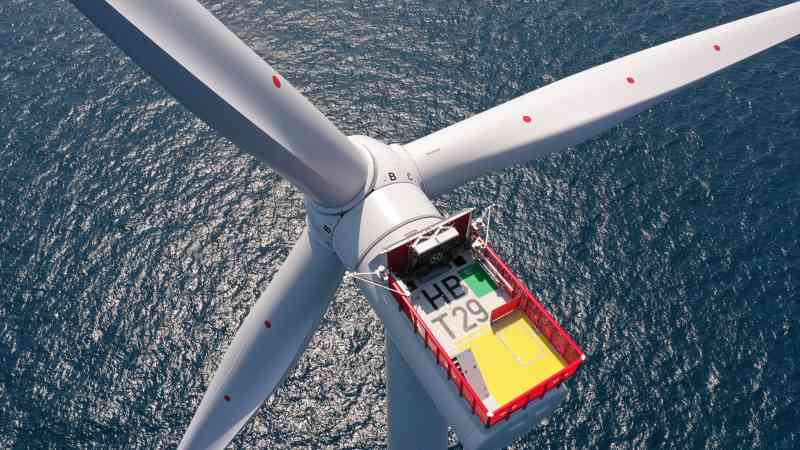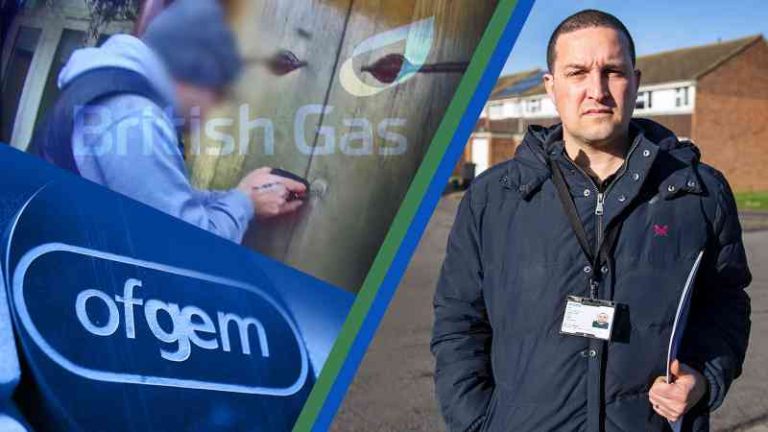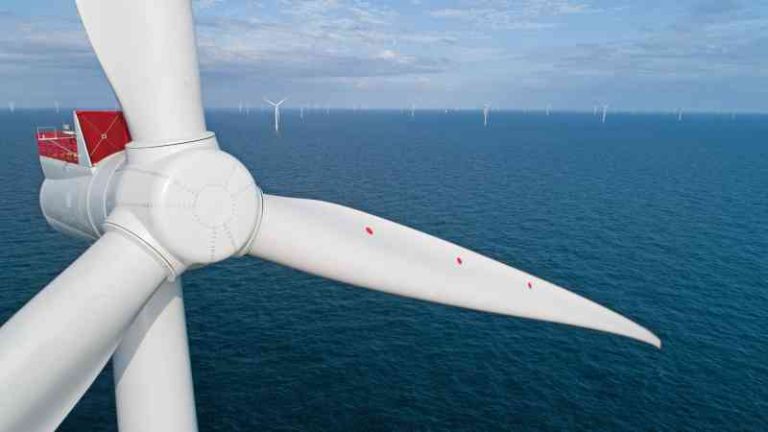Wind farm contract delay diverts £1bn in savings from consumers
Consumers could miss out on more than a billion pounds of energy bill savings from the world’s biggest offshore wind farm after its owner delayed a contract to provide cheap power from the project.
The Hornsea Two wind farm, capable of supplying 1.4 million homes, is fully operational, Orsted said yesterday. The Danish energy group said that the project 55 miles off the coast of Yorkshire would “provide low-cost, clean energy for millions of homes”.
However, households will not see any benefit from its promised low-cost power until April next year and will not get the full benefit until April 2024 because of Orsted’s decision to delay the contract.
Orsted said the delay was so that it could guarantee its revenues further into the future and that it would not benefit financially from high prices in the meantime because of its hedging arrangements. However, traders or other companies potentially could profit.
The company won its contract from the government in 2017 to provide power from the farm to households and businesses for 15 years at what was then a record low price, today worth £73.71 per megawatt-hour. Under the contract, when wholesale prices are higher than this, Orsted would pay the difference back to consumers. This would entail big savings at present wholesale power prices, which have increased to more than £400/MWh.
The contract was due to begin for the first phase of the project in April this year and for the remaining two phases in April next year. However, Orsted opted last summer to delay all the contract start dates by a year.
Analysis for The Times by Carbon Brief, the energy and climate website, found that if the power price remained at £400/MWh from now until April, consumers would miss out on £385 million savings because of the contract delay to the first phase. If power prices remained at £400/MWh until April 2024, then the contract delay for the next two phases could see consumers miss out on £1.3 billion in savings.
These savings would be spread between households and businesses, but each household could miss out on a £19 saving between now and April 2024. Prices this winter are at more than £700/MWh, suggesting that the missed savings could be greater.
The Times reported this year that the owners of two other offshore wind farms, Triton Knoll and Moray East, had delayed their contract start dates to enable them to cash in by selling power at soaring wholesale prices. Orsted said it would not profit from higher prices because when it had delayed its start dates, it had presold the electricity at prices below its contract price.
Orsted does not know who bought its power. Experts say it is possible it was bought by big business consumers locking in cheap prices or by suppliers offering cheap fixed-price deals; it also may have been bought by traders or other energy companies that could now sell it on to consumers at much higher prices.
An Orsted spokesman said “it is true that power that has been sold forward for delivery on a particular day can be traded again up to the day of delivery”, but added that events that had driven up prices could not have been forecast.
Simon Evans, deputy editor of Carbon Brief, said: “A number of developers have used flexibility within their contracts, which is delaying the point where households start to see the benefits of their cheap renewable generation.”






